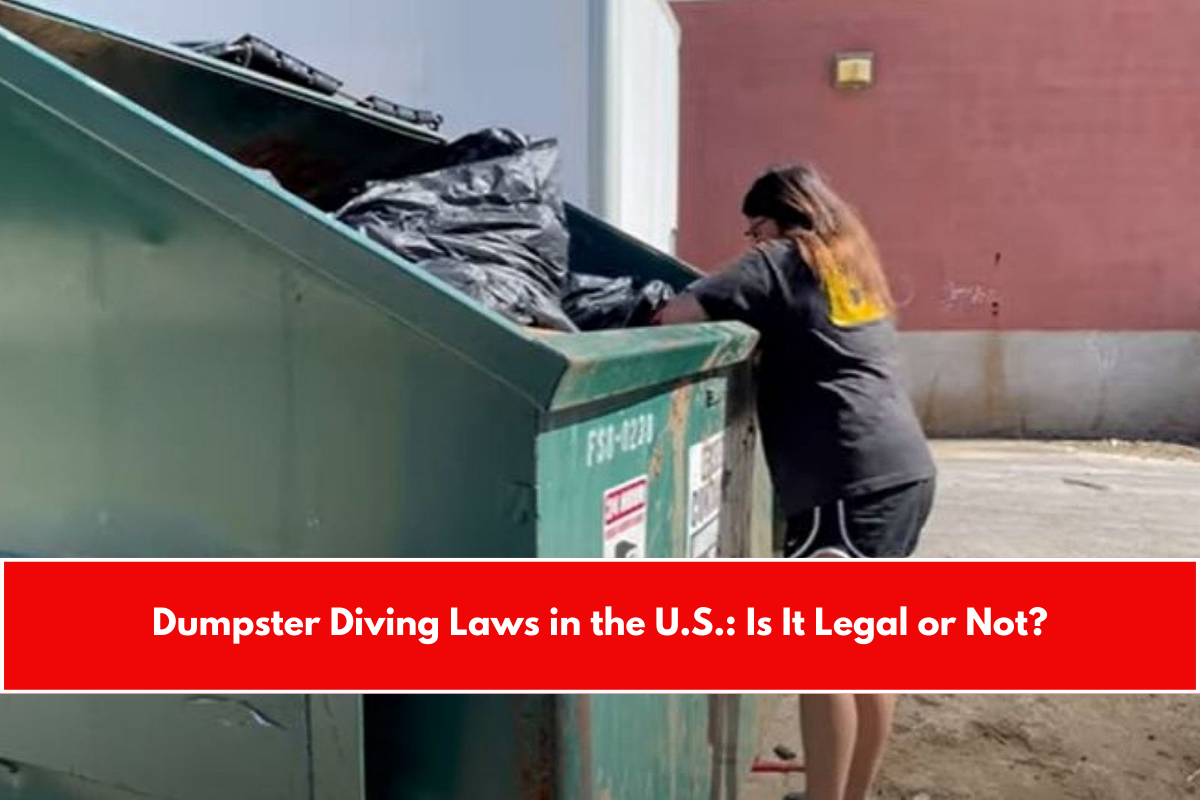Dumpster diving is no longer just something people do out of desperation. Today, it’s a growing trend among eco-conscious people, bargain hunters, and those who love the thrill of finding free things. From untouched food to perfectly usable products, people are discovering treasure in trash bins. But the big question remains—is dumpster diving legal?
Let’s break it down in simple terms so you know what’s allowed and what’s not.
What Is Dumpster Diving, and Why Is It Trending?
Dumpster diving means searching through waste bins or dumpsters to find items that others have thrown away. While it might sound odd to some, this practice has gained popularity for many reasons:
- It reduces waste and supports sustainability.
- It helps people save money or even find expensive, unused goods.
- Some use it as a way to survive tough financial times.
People have found new makeup, fresh produce, electronics, and even furniture this way!
Is Dumpster Diving Legal in the U.S.?
Yes, dumpster diving is generally legal at the federal level. Once an item is thrown away, the original owner no longer owns it. However, each state and city can have its own rules, and that’s where it gets tricky.
Things That Make Dumpster Diving Illegal:
- Trespassing on private property. If a dumpster is on private land (behind a fence, near a store, or marked with signs), diving in can lead to a trespassing charge.
- Locked or fenced dumpsters. These are considered private, and entering them is illegal.
- “No Trespassing” signs. Always respect posted signs to avoid fines or arrests.
If you’re not sure about the rules in your area, it’s best to check with local authorities or city websites.
Can You Get in Trouble Even If It’s Legal?
Yes, even in cities where dumpster diving is allowed, you could face issues if:
- You leave a mess after searching through bins.
- You block traffic or cause a disturbance.
- You are intoxicated while diving.
- You collect recyclables meant for city programs—this is sometimes considered theft.
Always clean up after yourself and be respectful of the area.
Are Dumpster Owners at Risk?
Surprisingly, yes. If someone gets hurt, sick, or has an allergic reaction from items found in a business dumpster, they might try to sue the property owner. That’s why many businesses put up signs and lock their dumpsters.
Dumpster Diving Laws by State
Here’s a quick summary: no U.S. state has completely banned dumpster diving. However, local laws differ, so always double-check city ordinances.
Some general rules across states:
- Legal statewide, but local rules apply: California, Texas, New York, Florida, and most others.
- Not specifically illegal, but subject to local regulation: North Dakota, Ohio, Illinois, etc.
- Best advice: Always check your city’s rules, not just the state’s.
Tips to Stay Legal and Safe
- Avoid locked or fenced-off dumpsters.
- Never enter private property without permission.
- Don’t take recyclables meant for collection programs.
- Leave the area clean.
- Use gloves and be cautious of sharp or harmful items.
Dumpster diving is legal in most parts of the U.S., but that doesn’t mean you can dive anywhere. Always check local city or municipal laws, avoid private property, and never dive into locked dumpsters. Be respectful, clean, and cautious, and you can enjoy this sustainable and surprisingly rewarding hobby legally.


















Leave a Reply